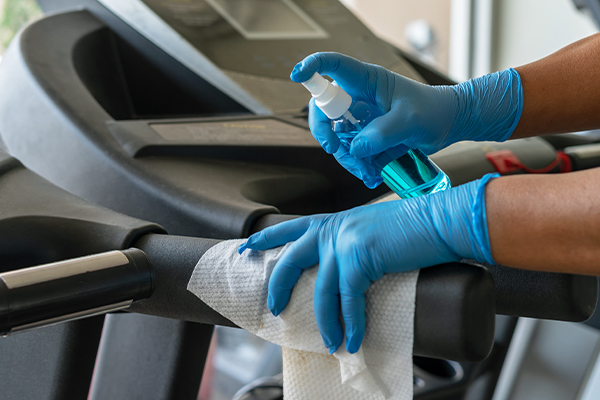Overview of the Commercial Cleaning Industry in Austin
The commercial cleaning industry in Austin, Texas is thriving alongside the city’s robust economic growth. As more businesses move to Austin and expand their offices, there is increasing demand for professional cleaning services to maintain these workspaces. Though the market does have some larger corporate providers, there are still opportunities for small, independent operations that can deliver customized and reliable cleaning.
Starting a commercial cleaning services Austin requires strategic planning even before the acquisition of equipment. Building a client roster one by one, providing consistent and quality results, as well as efficiently managing variable labor, are some of the challenges facing newcomers. However, Austin’s culture supports local entrepreneurs and values services like green cleaning. With the right foundation, there is room for dedicated operators to carve out market share.
Steps to Start a Commercial Cleaning Business in Austin
Determine the Services You Will Offer
When first starting, specialization is key – identify specific cleaning niches where you can excel. Analyzing the competition can help determine appropriate services. Typical office cleaning tasks include:
- Dusting/wiping surfaces
- Vacuuming
- Mopping hard floors
- Cleaning restrooms
- Removing trash/recycling
Extra services to consider: window/carpet/upholstery cleaning, pressure washing, construction site post-project cleanup, janitorial/staffing services, and green cleaning methods. Evaluate your available resources/skills to decide whether to offer basic or specialized cleaning packages.
Create a Business Plan
A detailed business plan is crucial for commercial cleaning – this should cover short and long-term financial and operational objectives plus an action strategy for accomplishing goals. Key elements:
- Industry research
- Competitor analysis
- Target clientele
- Desired market share
- Pricing models
- Startup and ongoing costs
- Projected cash flow/profits
- Staffing requirements
- Equipment needs
- Sales and marketing strategy
Revisiting and editing the plan regularly allows adjustment to evolving business conditions. Consider enlisting help from a consultant/SBDC.
Form a Legal Business Entity
Decide whether to operate as a sole proprietorship, partnership, corporation, or LLC. Corporation and LLC creation involves state paperwork plus formal stipulations around ownership, liability protection, taxes/fees, etc – but is advised for risk management. Consult legal/tax guidance when establishing the cleaning business’ legal entity.
Obtain Necessary Licenses and Permits
Commercial cleaning for hire requires a state sales tax ID in Texas for reporting taxable sales/purchases. The City of Austin has additional permitting stipulations for owners/operators of “building service companies” – this covers janitorial/custodial services plus some construction cleanup roles but exempts self-employed individuals. Liability insurance is also a must-have.
Find Commercial Cleaning Contracts
Sales is a careful process for sustainable commercial cleaning businesses. In-person pitches allow for showcasing the capability to deliver quality, reliable service. Emphasize specializations, available equipment/staff resources, and specific benefits over competitors. Build a website highlighting services, values, and past projects. Print brochures for in-person sales meetings. Reach out to property managers about office building and retail cleaning opportunities. Consider smaller one-off cleaning gigs in between larger contracts.
Hire Employees or Assemble Cleaning Teams
Cleaning crews can be challenging to organize but are vital to daily operations and profit margins. Build a reliable workforce – some options:
- Hire dedicated W-2 employees with payroll/HR administration
- Manage independent contractor teams with 1099 tax forms
- Temporary/seasonal workers through an agency
- Part-time/supplemental staff
Onboard staff with training on cleaning techniques plus company guidelines, safety standards, and customer service basics. Also be clear on wage rates, benefits eligibility, schedules, and responsibilities.
Purchase Cleaning Equipment and Supplies
Investment upfront in proper commercial cleaning equipment improves operational efficiency over time and allows for taking on bigger contracts. Basic needs:
Supplies:
- All-purpose cleaners + sanitizers + disinfectants
- Cloths, microfiber towels, scrub pads, mop heads
- Gloves, masks, safety gear
- Trash bags
Equipment:
- Industrial vacuum cleaners
- High-pressure sprayers
- Floor scrubber/buffer machines
- Backpack vacuums, steam cleaners, if needed for services offered
For cost management, buy supplies in bulk once sales pick up.
Market Your Commercial Cleaning Business
Consistent sales outreach builds market presence for small cleaning providers in Austin. Specific efforts:
- Website for a professional impression
- Search engine ads
- Printed mailers to property managers
- Cold call and email campaigns
- Networking events
- Signage/car branding
- Social media pages
Ask new clients how they heard of you and track outcomes of each marketing channel – double down on the most effective areas.
Key Factors for Success
Deliver Consistent, High-Quality Cleaning Services
Every executed contract either reinforces or diminishes the business’s reputation, so quality control is imperative – audit work sites frequently. Invest in staff training, follow detailed service checklists for each site, respond promptly to complaints, and give occasional small gifts as tokens of appreciation for continued business.
Build Relationships and Trust with Clients
Commercial cleaning thrives on continued patronage from long-term customer accounts. Make communication a priority – check in on needs, provide updates on new capabilities, wish them holidays/milestones, and tap clients for testimonials. Business longevity and personal service foster trust and retention.
Manage Costs and Operate Efficiently
Careful monitoring of operating budgets allows price competition while sustaining profitability – analyze and minimize overhead like inventory, equipment, and water/energy usage. Seek volume discounts from vendors/distributors and negotiate contractor rates during slower periods or for multi-site contracts. Consider sustainability initiatives to manage waste disposal costs. Bank a portion of the income from boom times for the inevitable seasonal dips.
Pay Attention to Safety and Security
From chemical handling to crisis protocols, commercial cleaning carries workplace hazards without proper precautions – provide appropriate staff training, gear, and procedures. Conduct background checks before client site access. Specify insurance requirements clearly in vendor contracts. Implementing today’s technology – apps for remote access, GPS tracking, and automated check-ins – adds protection beyond traditional measures.
Challenges to Expecting
Seasonal Revenue Cycles
Office and retail cleaning needs fluctuate each year – with dips around the holidays plus summer for schools/universities. Build emergency funds and push for off-season deep cleaning projects. Consider adding related services like pressure washing or construction cleanup to offset the janitorial lulls.
Staffing Uncertainties
Turnover and absenteeism make consistent delivery with cleaning staff tough for small business owners – seek to pay competitively while affirming the value of reliable team members. Implement incentives, safety standards, and scheduling redundancy – with subcontractor benches – to minimize disruption. Apps that allow shift adjustments and transparent communication help.
Meeting Tighter Cleaning Schedules
Peak activity spaces like corporate lobbies and mall food courts often require multiple daily cleanings. Bid intentionally on contracts suited to current capacities – then add crews and equipment to scale. Consider 24-hour hospital/emergency cleaning to boost overnight revenue. Insert flexibility clauses allowing renegotiation if demands intensify unexpectedly.
Adapting to Client Needs
Each business location served – medical clinic, car dealership, events center, co-working space – has unique layouts, built materials, traffic patterns, and usage, requiring tailored cleaning plans. Preemptively suggest custom solutions during sales meetings and then plan meticulously before an initial cleaning. Reassess periodically and adjust with the client as needs shift.








